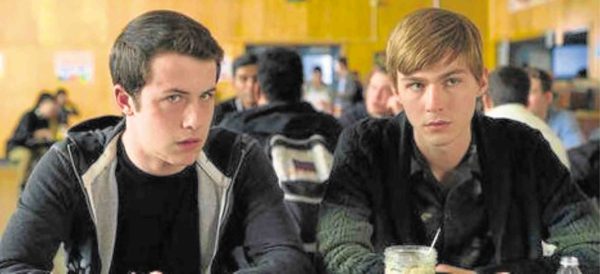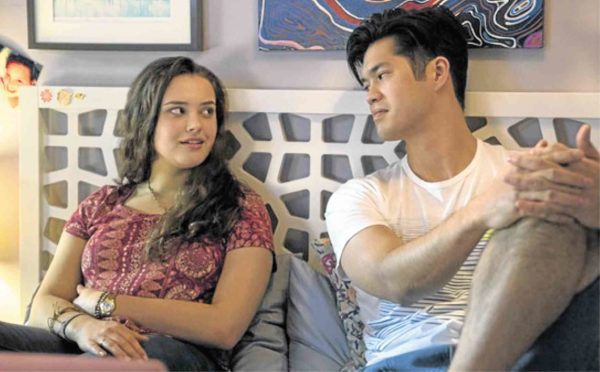Last year, the teen drama “13 Reasons Why” was immediately controversial upon its release, praised by some for its gritty depiction of teen life and mental health issues, but also criticized by others for its graphic portrayal of suicide and sexual abuse.
The anticipated Netflix show is back—and while it has warnings for those who might get triggered by serious or violent content, it still doesn’t gloss over the terrible things that the characters commit.
Moreover, there’s a self-awareness and timeliness that may not always feel natural, storytelling-wise. But issues like sexual harassment and gun control more closely reflect real-life situations.
Season 2 has those angles covered, but it perplexes for a variety of reasons. Previously, disturbed teen Hannah Baker (Katherine Langford) leaves behind cassette tapes of her story. After her suicide, the recordings find their way to the people who hurt her. In those tapes, she narrates in painful detail, the events that lead to her tragic end.
Justice
One of the students she talks about in the tapes, her shy friend Clay (Dylan Minnette), is shocked by her demise, and now seeks justice for Hannah.
In a later episode, he secretly records smug jock Bryce’s (Justin Prentice) admission of rape. The tapes eventually end up being heard by her parents by the end of Season 1, signaling the legal battle that would take place.
Just as affected by the suicide is Alex (Miles Heizer), who was severely depressed when he attempted taking his own life, also in the last cliffhanger. Now, months later, he is partly crippled but recovering, and also wants justice for his friends, Hannah and his ex, Jessica (Alisha Boe), who was also raped by Bryce. And the mysterious appearance of incriminating polaroids adds a new puzzle to be solved.
That is a pervading theme in the series’ new episodes: redemption.
Many of those who wronged or ignored Hannah are speaking up. There’s also the trial where the school is being sued for neglect, where previously unseen, surprising information—as well as outright lies—are disclosed.
But Hannah’s still around. Clay “sees” her and, this time, he even “converses” with her. It’s a tricky device that works, most of the time, but that inclusion sometimes comes off as weird.
But Minnette is far more intense as the once-smitten Clay in these episodes, convincingly unnerved and baffled about new discoveries, and willing to rectify his shortcomings in his inimitably impassioned way.
There’s a new controversy regarding another violent assault, this time with a male victim. But show creator Brian Yorkey told Vulture recently, “When we talk about something being ‘disgusting’ or hard to watch, that often means we are attaching shame to the experience…We believe that talking about it is so much better than silence.”
Stressful
It’s stressful viewing, far more disconcerting than the grim teen show “Riverdale.” But this is more firmly anchored in realistic situations.
Despite the brutality and depictions of drug and gun use, it still manages to be uplifting. It’s gay-friendly—the closeted lesbian Courtney (Michele Selene Ang), the artistic but vain Ryan (Tommy Dorfman) and the tough brawler Tony (Christian Navarro) are focused on commendably.
It’s also empowering, as Hannah’s angry and regretful mom, Olivia (Kate Walsh), gets to know her daughter and the friends now fighting for her even more. It’s far less smooth and solid, but like the first season of “13 Reasons Why,” it’s still affecting and emotionally draining.
To its credit, it crams a variety of topics, from #MeToo to antibullying messages, giving the discomfiting, self-aware show some sense of closure and renewed relevance.



